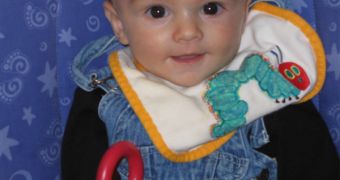Behavior experts say that the different levels of social acceptance that people get from various groups are crucial in developing their abilities of picking up deceiving gestures, such as smiles, that are directed at them during various events. Those people who are used to being rejected by others showed much more accuracy in identifying fake smiles than those who are used to fitting in without a glitch.
Michael J. Bernstein, a psychologist at Miami University, put together a team of experts, in order to be able to create viable focus and control groups, for his experiment, which included the forming of three test subject categories. The first was induced feelings of insecurity and social rejection, by asking members to remember moments when they felt excluded on a social level. Members of the second group were made to feel accepted, by asking them to remember a moment when they felt most welcomed. A third group was induced neutral memories.
All test participants were then showed a slide show of images depicting several smiles. Some of these smiles were genuine, while others were faked particularly for this experiment. Those who felt excluded more often were able to distinguish between the two types of smile more efficiently and accurately than those who usually felt included in various groups.
Behavior experts believe these results are a natural consequence of the fact that the feelings of disappointment that overwhelm people after a moment when they feel excluded or ridiculed, especially in public, are very strong and, therefore, make them more susceptible of detecting fake signals put out there by other people.
The reason behind this sensitivity to fake signals is the desire to feel included and accepted, psychologists say. Those who have no problem fitting in are less motivated to pick up fake signals, because their need for inclusion is far more reduced than that of those who are constantly rejected by others. "It seems essential to detect legitimate signs of positivity that indicate possible reaffiliation with other people. Otherwise, rejected individuals could miss out on new chances for acceptance or 'waste' affiliation efforts on people who are not receptive," explained the authors of this new study.

 14 DAY TRIAL //
14 DAY TRIAL //